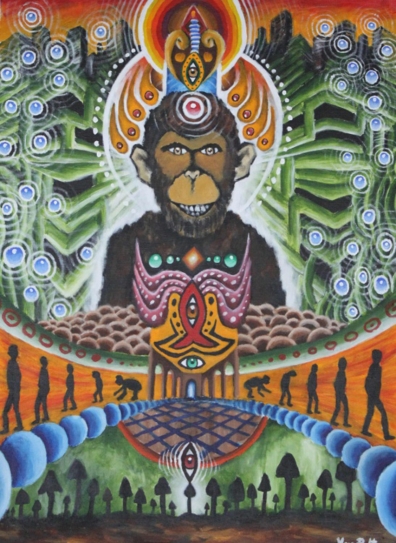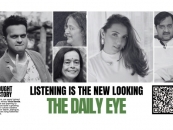
Mirrors: Capturing And Recording The Collective Consciousness Through Media
by Shiv Bhalla August 1 2015, 11:18 pm Estimated Reading Time: 3 mins, 22 secsIn the recent wake of the Yakub Memon case, opinions have been polarized creating a rift, a schism of thought and identity has manifested in the nation’s collective consciousness mirrored by the media. On one hand, there are thunderous voices of dissatisfaction reverberating in rebellion over court’s decision to pander to the herd mentality by sentencing Memon to death as a symbolic gesture in a misguided attempt to affirm a sense of control and dominance over the elusive and often abstract idea of terror. On the other hand are the sycophantic ‘patriots’ who unflinchingly celebrate the death of a man guilty of association, haphazardly sentenced with inconclusive evidence.
The media has historically been used to discern the attitudes and opinions of its time, and has aided many a historian in the monolithic task of recording the abstractions of public opinion and group sentiments. It is essentially neutral device, devoid of conscience or intention. But should it be? The media, just like language and technology is an extension of the human phenotype. It is us, humans who project onto the media that makes its content morally equivocal. Therefore it will mirror the input it is given, offering important and accurate insight on the social contract prevalent at the time.
It was reassuring to see people divided on the issue of Yakub Memon considering the past nationalistic rhetoric deeply entrenched in emotion when it came to relatively synonymous issues. It seems that in the past, due to the corporatization of traditional media, the rhetoric was generally politicized to suit corporate interests. A new boldness has emerged to call out flawed journalism and provides a narrative with technicalities that are no longer obscured. In Memon’s case, the conflicted views of the judges and their opposition to the verdict. The democratization of information through the ‘world wide web’ has given rise to a colossal surge of real time information; every opinion is represented as they come down in torrents, inescapable.
Although there were opinions galore in praise of the message India has sent out, the reality is that all these opinions in support of the verdict are firmly rooted in bias not fact. Justice works with conclusive evidence. A deep seeded resentment for our neighbours has clouded the judgement of many, who have been indoctrinated by the nationalistic propaganda especially reminiscent of the nineties. It will be long before not only India, but majority of the world realizes that capital punishment is barbaric and backward, an arrogant practice that achieves a false and misplaced sense of justice. The irony that the verdict was probably orchestrated to project a geopolitical image of austerity, the reality is that we look like monkeys with delusions of grandeur; is not lost.
People argue that this acts a deterrent for future terror attacks. This is issues, without conclusive evidence how can justice ever be served? If we were to make exceptions for a perceived terrorist it would set precedent and open up a Pandora’s box of misuse. In an already corrupt judicial system, precedent allows for a downward spiral of abuse of power. Rhetorical questions like “would you rather have more bombings on trains in Mumbai” are red herrings; terror attacks are complex with many causative factors and cannot be attributed just one variable.
The redemptive feature of our species lies in our pursuit of philosophical ideals. It’s disheartening when these pursuits are lost to biases based in emotion and group hysteria for retribution. One may argue that the symbolic gesture of hanging Yakub sends out the message that India will not stand for terror. I believe that it sends out a message of weakness and of immaturity. Violence in many ways defines human nature and the human condition, evolution however occurs through conscious and conscientious deviation from negative norms. A direct recourse of this would be an evolved media, mirroring an evolved society; where the news may not be exceedingly positive, but reactions and attitudes will.






-173X130.jpg)
-173X130.jpg)
-173X130.jpg)
-173X130.jpg)
-173X130.jpg)
-173X130.jpg)